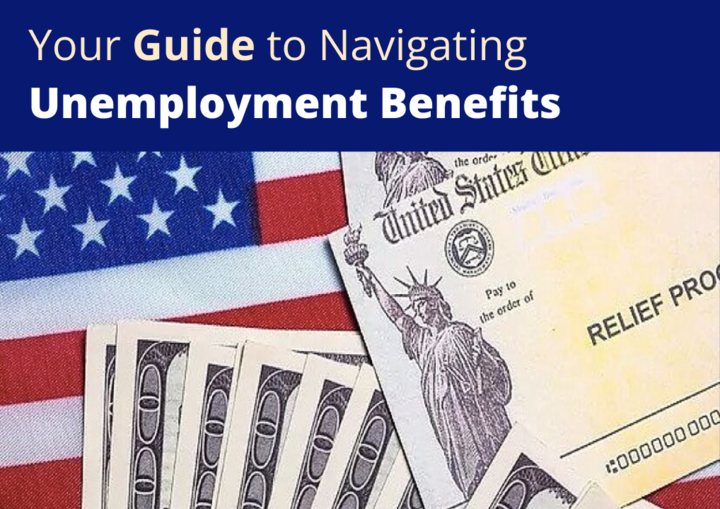In the realm of automotive ownership, the concept of warranties plays a pivotal role in safeguarding both the vehicle and the owner’s financial investment. While many car manufacturers offer warranties that cover specific repairs and maintenance for a limited time, third-party auto warranties have emerged as a popular alternative. These warranties, provided by independent companies rather than the vehicle manufacturer, aim to fill the gaps left by factory warranties, offering additional protection for drivers who wish to extend their coverage beyond the original terms.
As vehicles become increasingly complex and costly to repair, understanding the nuances of third-party auto warranties is essential for any car owner looking to make informed decisions about their vehicle’s protection. Third-party auto warranties can vary significantly in terms of coverage, cost, and reliability. They are designed to provide peace of mind to drivers who may be concerned about unexpected repair costs as their vehicles age.
However, the landscape of third-party warranties is not without its challenges. Potential buyers must navigate a myriad of options, each with its own set of terms and conditions. This article delves into the advantages and disadvantages of third-party auto warranties, explores their coverage and limitations, discusses associated costs, and offers guidance on how to choose the right warranty for individual needs.
Key Takeaways
- Third-party auto warranties provide extended coverage for vehicle repairs after the manufacturer’s warranty expires.
- Pros of third-party auto warranties include cost savings, flexibility in choosing repair shops, and transferability to new owners.
- Cons of third-party auto warranties may include coverage limitations, claim denials, and the potential for higher out-of-pocket expenses.
- Coverage and limitations of third-party auto warranties vary by provider and plan, so it’s important to carefully review the terms and conditions.
- The cost of third-party auto warranties depends on factors such as the age and mileage of the vehicle, as well as the level of coverage desired.
The Pros of Third-Party Auto Warranties
Customization to Meet Individual Needs
Unlike manufacturer warranties that are often tied to specific time frames or mileage limits, third-party options can be tailored to meet the unique needs of individual drivers. This customization allows car owners to select coverage that aligns with their driving habits, vehicle age, and personal budget.
Comprehensive Coverage for Older Vehicles
For instance, a driver with an older vehicle may opt for a comprehensive plan that covers major components like the engine and transmission, while someone with a newer model might choose a more basic plan that covers essential systems. Additionally, third-party warranties can provide coverage for vehicles that may no longer be eligible for manufacturer warranties.
Protection from Unexpected Repair Costs
As cars age, they often require more frequent repairs, and having a third-party warranty can alleviate the financial burden associated with these unexpected costs. For example, if a vehicle’s air conditioning system fails after the factory warranty has expired, a third-party warranty could cover the repair costs, saving the owner from a potentially hefty bill. This aspect is particularly appealing to those who plan to keep their vehicles for an extended period or who drive high-mileage vehicles.
The Cons of Third-Party Auto Warranties
Despite their advantages, third-party auto warranties are not without drawbacks. One significant concern is the potential for limited coverage compared to manufacturer warranties. Many third-party providers may exclude certain components or systems from their plans, leaving car owners vulnerable to out-of-pocket expenses for repairs that are not covered.
For instance, while a manufacturer warranty might cover a wide range of issues, a third-party warranty could have exclusions for wear-and-tear items or specific electronic components that are increasingly common in modern vehicles. Moreover, the reputation and reliability of third-party warranty providers can vary widely. Some companies may have excellent customer service and claims processes, while others may be notorious for denying claims or providing inadequate support.
This inconsistency can lead to frustration for car owners who expect their warranty to provide reliable protection. Researching customer reviews and ratings is crucial before committing to a third-party warranty provider, as negative experiences can significantly impact the overall value of the warranty.
Coverage and Limitations of Third-Party Auto Warranties
When considering a third-party auto warranty, it is essential to thoroughly examine the coverage options available. Most plans fall into two primary categories: powertrain warranties and comprehensive warranties. Powertrain warranties typically cover critical components such as the engine, transmission, and drivetrain, while comprehensive warranties extend coverage to additional systems like electrical components, air conditioning, and even some interior features.
Understanding these distinctions is vital for car owners who want to ensure they are adequately protected against potential repair costs. However, limitations often accompany these coverage options. Many third-party warranties come with stipulations regarding maintenance requirements; for example, regular oil changes and inspections may be mandated to keep the warranty valid.
Failure to adhere to these requirements could result in denied claims when repairs are needed.
Additionally, some plans may impose deductibles on claims or limit the number of claims that can be made within a specific timeframe.
These limitations can affect the overall value of the warranty and should be carefully considered before making a purchase.
Cost of Third-Party Auto Warranties
The cost of third-party auto warranties can vary significantly based on several factors, including the type of coverage selected, the age and make of the vehicle, and the provider’s pricing structure. On average, car owners can expect to pay anywhere from $1,000 to $3,000 for a comprehensive warranty plan that lasts several years. However, this initial investment must be weighed against potential repair costs that could arise without coverage.
It’s also important to consider how payment options can affect overall costs. Some providers offer flexible payment plans that allow customers to pay in installments rather than a lump sum upfront. While this can make it easier for some drivers to budget for a warranty, it may also lead to higher overall costs due to interest or financing fees.
Additionally, prospective buyers should be aware of any hidden fees associated with purchasing a warranty, such as administrative costs or cancellation fees if they decide to terminate the contract early.
Choosing the Right Third-Party Auto Warranty
Assessing Your Vehicle’s Needs
The age and condition of your vehicle are crucial factors to consider when choosing a third-party auto warranty. Older vehicles may benefit from more comprehensive coverage due to their increased likelihood of requiring repairs. On the other hand, newer cars might only need basic coverage for essential components.
Researching Providers and Their Reputations
Researching different providers and their reputations in the industry is another critical aspect of selecting the right warranty. Reading customer reviews and testimonials can provide valuable insights into how well a company handles claims and customer service issues.
Comparing Warranty Options and Engaging with Customer Service
It is essential to compare multiple warranty options side by side to identify which plans offer the best value for money based on coverage limits and exclusions. Engaging with customer service representatives from different companies can also help gauge responsiveness and support quality before making a commitment.
Alternatives to Third-Party Auto Warranties
For those who may find third-party auto warranties unsuitable or too costly, several alternatives exist that can provide similar peace of mind without committing to a lengthy contract. One option is self-insurance through savings; setting aside funds specifically for vehicle repairs can empower car owners to manage unexpected expenses without relying on a warranty provider. This approach requires discipline but can ultimately save money in the long run.
Another alternative is manufacturer-certified pre-owned (CPO) programs that often come with extended warranties or service contracts directly from manufacturers. These programs typically offer more comprehensive coverage than many third-party options while ensuring that repairs are conducted using original parts by certified technicians. Additionally, some credit card companies offer extended warranty benefits on purchases made with their cards; this can provide added protection for new vehicle purchases without incurring additional costs.
Conclusion and Final Thoughts on Third-Party Auto Warranties
Navigating the world of third-party auto warranties requires careful consideration of various factors including coverage options, costs, and provider reputations.
While these warranties can offer valuable protection against unexpected repair expenses, they also come with limitations that must be understood before making a commitment.
By thoroughly researching available options and assessing individual needs, car owners can make informed decisions that align with their financial goals and vehicle maintenance strategies.
Ultimately, whether opting for a third-party warranty or exploring alternatives such as self-insurance or manufacturer programs, understanding the intricacies of automotive protection is essential in today’s complex automotive landscape. With vehicles becoming more sophisticated and repair costs rising steadily, having a solid plan in place can provide peace of mind and financial security for drivers everywhere.
FAQs
What is a third-party auto warranty?
A third-party auto warranty is a type of warranty that is not offered by the vehicle manufacturer. Instead, it is provided by a separate company that specializes in extended warranties for vehicles.
What are the pros of third-party auto warranties?
Some of the pros of third-party auto warranties include extended coverage beyond the manufacturer’s warranty, potential cost savings compared to dealership warranties, and the ability to choose from a variety of coverage options and providers.
What are the cons of third-party auto warranties?
Some of the cons of third-party auto warranties include the potential for coverage limitations, exclusions, and restrictions, as well as the risk of dealing with less reputable warranty providers. Additionally, some third-party warranties may require upfront payment for repairs and reimbursement, rather than direct payment to the repair facility.







